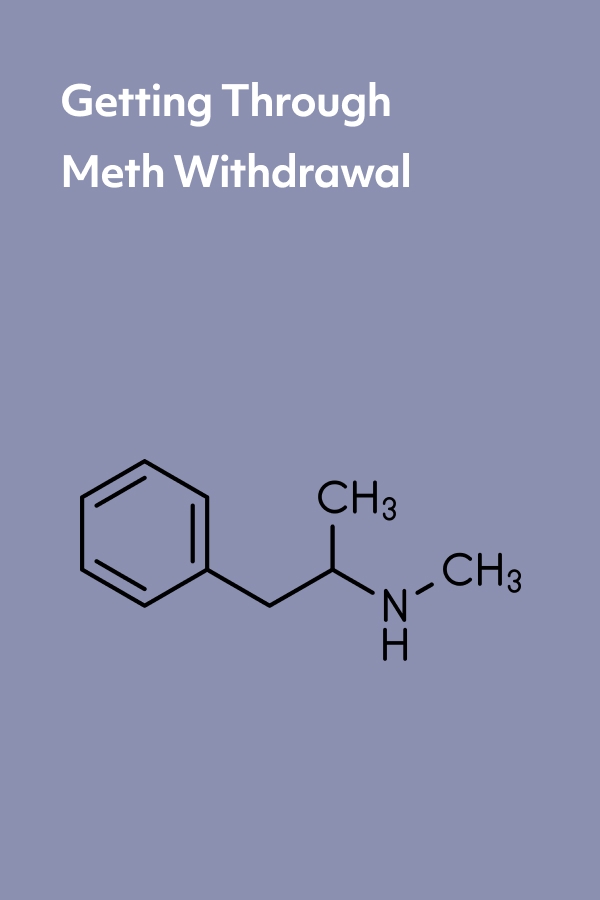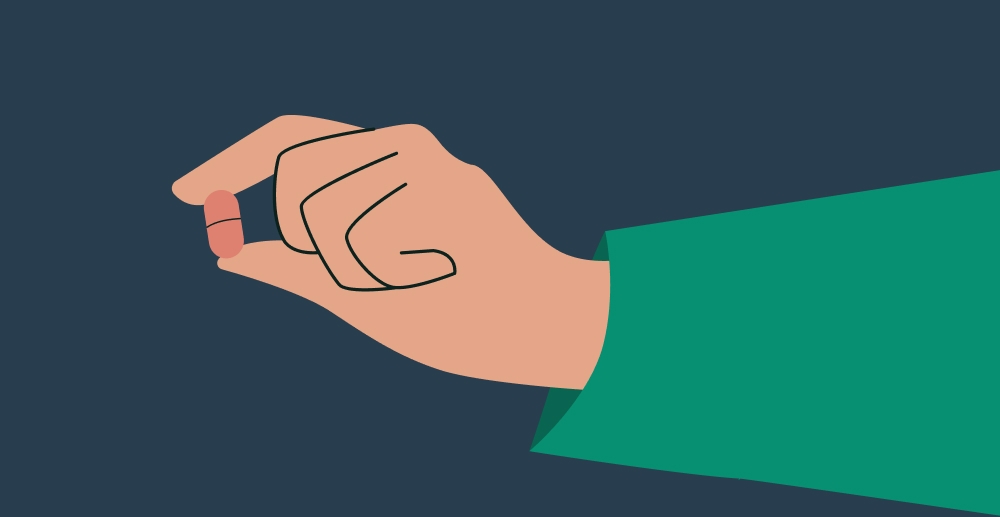Withdrawal from meth can be uncomfortable, but there are tools to help you get through it, and freedom waiting on the other side.
When you’re an addict, there’s an indescribably uncomfortable space between getting high and waiting to get high. It’s hell on earth. When I was actively using, irritability, depression, anxiousness, and dread simmered inside of me until I was able to get my needs met by drugs and alcohol.
Even worse, getting high set into motion the maddening cycle of trying to manage my intoxication. I wanted to magically take just enough to take the edge off but not so much I would be completely loaded. Likewise, I never wanted to take too little, because I could wind up somewhere where I’d be unable to get high again … therefore putting me right back in that awful in-between space. My solution? Just try my damnedest to be high all the time.
Obviously, this was devastating and not sustainable. When I got sober in 2009, I had a feeling a lot of my days would be filled with that in-between feeling and the inability to scratch an itch only relived by drugs and alcohol. Fear of a gnarly withdrawal had been one of the reasons why I avoided getting sober in the first place. When I was actively using meth, the destructive cycle was hard to shake because the highs were intensely high and the lows were lower than I’d ever known. I quit meth in favor of hardcore drinking and cocaine use, primarily because I didn’t know if I make it through a meth withdrawal on my own with zero substances. 13 years of sobriety later, much of my day job as a peer supervisor on a hospital addiction medicine team is focused on helping people walk through meth withdrawal. True, withdrawal from meth is not easy but it is possible, especially when you’re armed with what to expect and some tips to make it less painful.
Common symptoms of meth withdrawal
I’m too lazy to google the origin of calling meth “crank,” but maybe it’s because when you’re detoxing from meth, you’re cranky as hell. Yes, one of the first signs of meth withdrawal is feeling pretty damn pissed off. This makes a lot of sense when you think about it. Your brain and body are used to being really high and all of the sudden—nothing! Many of our former patients coming off meth, who in normal circumstances were delightful humans, would suddenly be found throwing food trays or yelling at nurses.
Anxiety and its pal depression usually show up to keep the extreme irritability company during withdrawal. These uncomfortable mental symptoms can last up to five weeks. Sleep isn’t exactly something that happens during regular meth use so extreme fatigue, which can last a couple of weeks, is also incredibly common. Ditto food isn’t something we really remember to add to the repertoire of life when we’re using meth so it’s not uncommon to crave bread, pasta, cookies, and other carbs for the first 3 weeks. Depending on the amount and length of your meth use, more serious symptoms are very likely. Intense cravings for meth could last several weeks and meth psychosis could continue for 2 or so weeks.
To summarize the most common timeline of symptoms:
- First 2 weeks: intense cravings for meth, meth psychosis
- First 3 weeks: fatigue, cravings for carbs
- First 5 weeks: irritability, anxiety, depression
There are tools to combat meth withdrawal
But don’t let these symptoms scare you off from quitting. There are a lot of tools that can help you get through the worst of it and live a happy meth-free life. For the aforementioned crankiness, depression, and anxiety, there’s plenty of evidence that suggests that meth addiction can be combatted with the help of other people, in particular groups. Studies suggest that groups of folks with similar lived experiences can help immensely and in the era of COVID, telehealth groups of all kinds can be accessed from anywhere.
I’ve personally had a lot of success with folks in meth withdrawal by using contingency management. Contingency management is an evidence-based practice that rewards meth users with gift cards, treats, or other prizes for staying sober. This can offer encouragement for people to keep going and seems to lift their spirits in the process. Little things like candy bars, coloring books, and a favorite Starbucks drink sometimes made the difference in my participants leaving the hospital against medical advice or staying to complete treatment. As an addict myself who still enjoys treats, contingency management makes a lot of sense to me.
For the other intense mental health symptoms, other studies show bupropion (commonly known as the antidepressant Wellbutrin) helps not only with the anxiety and depression, but potentially with cravings too. Talking to your provider about sleep medications and antipsychotics could also help with insomnia and meth psychosis, respectively.
Lastly, good old Tylenol, plenty of water to fight meth dehydration, and lots of carbohydrates really help with the basic aches and pains of stimulant withdrawal. In our addiction, we often forget to take care of these basic needs so the simple act of remembering to eat or forcing yourself to sleep in can really make a big difference.
This too shall pass
When I first started my recovery journey, it used to annoy me when people would say, “This too shall pass.” It felt dismissive and also impossible. Like, great! It might pass, but could you tell exactly when it will pass? “This too shall pass on Friday at 3:45pm,” would be a helpful statement. Otherwise, don’t say that to me unless you want me to throw a shoe at your head! For many of us, those early days, especially during withdrawal, are miserable and feel like they won’t ever pass.
But the people who told me that were right. It does pass. We have to give ourselves the opportunity to let it pass, though.
I had to be gentle on myself during early sobriety. I had to take excellent care of myself. I had to avoid other people who were drinking and using. I had to remember to have a burrito before I got hangry and yelled at someone. But mainly, I had to remember I was worth the effort and that I was finally putting myself first. Several thousand one-day-at-a-times later, I still have to remember these things.
The good news is, aside from waiting for the coffee maker, the uncomfortable spaces waiting to get high are a thing of the past.










